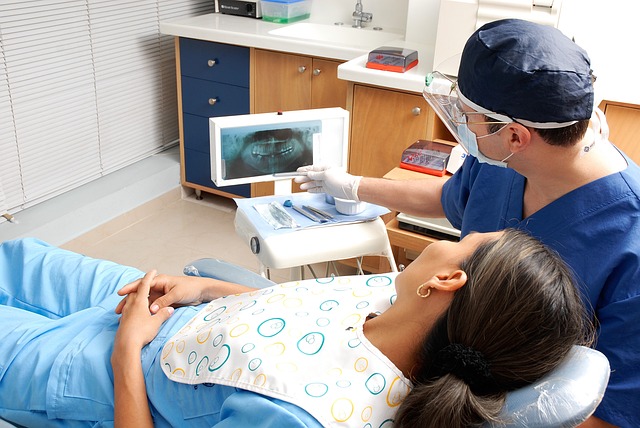Considering Dental Implants in 2025? Explore the Most Advanced Tooth Replacement Options in Australia
Considering full mouth dental implants? This guide outlines the expected price ranges, key factors influencing costs, and available payment options in Australia for 2025. Understanding these aspects can help you plan effectively for this comprehensive dental treatment.

What Makes Dental Implants in Australia in 2025 Stand Out?
The landscape of dental implants in Australia has evolved significantly, with cutting-edge technologies now available across major cities and regional centres. Modern implant systems utilise titanium or zirconia materials that integrate seamlessly with jawbone tissue through a process called osseointegration. Australian dental practitioners now have access to computer-guided implant placement, 3D imaging technology, and same-day implant procedures that were previously unavailable.
Advanced surface treatments on implant fixtures have reduced healing times from several months to as little as 6-8 weeks in many cases. Additionally, digital workflow systems allow for more precise treatment planning and better predictable outcomes, making the entire process more comfortable and efficient for patients.
Current Price Ranges and Estimates for Dental Implants
Understanding the financial investment required for dental implants helps patients make informed decisions about their oral health. In Australia, single dental implant costs typically range from $3,000 to $6,500, depending on the complexity of the case and location of the practice. This price generally includes the implant fixture, abutment, and crown restoration.
Multiple implant procedures or full-mouth reconstructions can range from $15,000 to $40,000 or more, depending on the number of implants required and any additional procedures such as bone grafting or sinus lifts. Premium implant systems and advanced surgical techniques may command higher fees, but often provide superior long-term outcomes.
| Treatment Type | Price Range (AUD) | Duration | Success Rate |
|---|---|---|---|
| Single Dental Implant | $3,000 - $6,500 | 3-6 months | 95-98% |
| Multiple Implants (2-4) | $8,000 - $20,000 | 4-8 months | 95-97% |
| Full Mouth Reconstruction | $15,000 - $40,000 | 6-12 months | 90-95% |
| All-on-4 Treatment | $20,000 - $30,000 | 3-6 months | 92-96% |
Prices, rates, or cost estimates mentioned in this article are based on the latest available information but may change over time. Independent research is advised before making financial decisions.
Available Payment and Financing Options
Australian dental practices increasingly offer flexible payment solutions to make dental implants more accessible. Many clinics provide in-house payment plans allowing patients to spread costs over 12 to 24 months with little to no interest charges. Third-party financing companies such as MacCredit, Zip Money, and Humm offer longer-term payment plans with competitive interest rates.
Some practices partner with specialist medical financing providers that offer extended payment terms up to five years. These options often require a credit assessment but can make expensive treatments more manageable. Additionally, using superannuation funds for dental treatment may be possible under certain hardship conditions, though this requires approval from your super fund.
Insurance Coverage and Government Support Options
Private health insurance coverage for dental implants varies significantly between providers and policy levels. Most basic dental cover excludes implants entirely, while comprehensive policies may provide partial coverage ranging from $500 to $2,000 per implant. Waiting periods typically apply, often extending 12 months or more before implant coverage becomes active.
The Medicare system generally does not cover dental implant procedures, as they are considered elective treatments. However, some public dental services may provide implant treatment for specific medical conditions or severe dental trauma cases. Veterans may be eligible for implant coverage through the Department of Veterans’ Affairs, depending on their service-related health conditions.
Choosing the Right Implant Treatment for Your Needs
Selecting appropriate implant treatment depends on several factors including bone density, overall health, lifestyle, and aesthetic requirements. Single implants work well for isolated tooth loss, while multiple missing teeth may benefit from implant-supported bridges or partial dentures. Patients missing all teeth might consider All-on-4 treatment or full-arch implant solutions.
Bone grafting procedures may be necessary for patients with insufficient jawbone density, particularly in the upper jaw or areas where teeth have been missing for extended periods. Advanced techniques such as zygomatic implants or pterygoid implants can provide solutions for patients with severe bone loss who were previously considered unsuitable for traditional implants.
The future of dental implants in Australia looks promising, with continued technological advancement and improved accessibility making these life-changing treatments available to more patients than ever before. Success depends largely on choosing experienced practitioners, maintaining excellent oral hygiene, and following post-surgical care instructions. While the initial investment may seem substantial, dental implants typically provide decades of service, making them a cost-effective long-term solution for tooth replacement.
This article is for informational purposes only and should not be considered medical advice. Please consult a qualified healthcare professional for personalized guidance and treatment.




